Iran Sentences Belgian Aid Worker To 40 Years In Prison

Iranian media say a detained Belgian national detained in 2022 has been sentenced to 40 years in prison by the judiciary of the Islamic Republic.

Iranian media say a detained Belgian national detained in 2022 has been sentenced to 40 years in prison by the judiciary of the Islamic Republic.
According to Mizan news website, affiliated with the judiciary, Olivier Vandecasteele in addition to his long prison term must get 74 lashes for alleged “spying and cooperation with the United States, money laundering and currency smuggling.”
The Belgian aid worker had earlier denied the charges, but on Tuesday he was handed four jail terms, as well as sentences of 74 lashes and a fine.
Belgium is summoning the Iranian ambassador, Foreign Affairs Minister Hadja Lahbib said Tuesday in a statement.
Brussels announced in July that Vandecasteele, a former employee of the Norwegian Refugee Council, had been arrested in the Islamic Republic.
Based on Iranian law, he would be eligible to be freed after serving 12.5 years.
Vandecasteele has the right to appeal the verdict within 20 days, ISNA news agency reported.
He worked in Iran for humanitarian organizations for more than six years and left the country. Later, he was lured back by “a girlfriend” and was detained in February 2022.
A spokesman for Vandecasteele’s family announced in December that he has been sentenced to 28 years in prison.
Belgium and Vandecasteele’s family believe he is innocent and a victim of hostage taking by the Iranian regime. They say Tehran intends to force Brussels to release Iranian diplomat Assadollah Assadi who was sentenced to 20 years in prison in Belgium in 2021.
Asadi was accused of plotting a bomb attack on a meeting of an Iranian opposition group outside Paris.
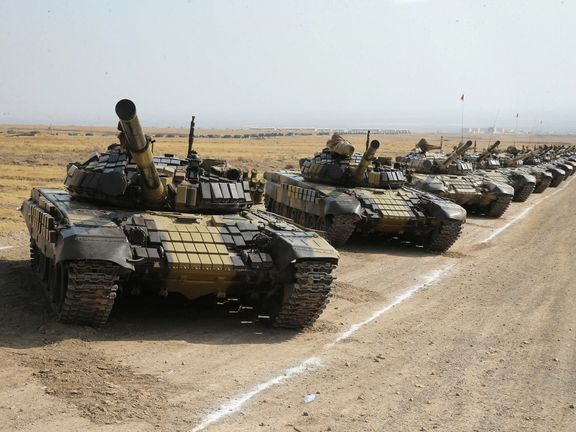
The United States’ proclaimed concentration on Ukraine and China at the expense of the Middle East has prompted criticism from various directions.
For several months, officials in the administration of President Joe Biden have stressed that US foreign-policy priorities, reflected in staff time, have been the Russia-Ukraine conflict and calibrating policy towards the rise of China.
With the Middle East, leading US officials have said for several months that efforts to restore the 2015 Iran nuclear deal are no longer a ‘focus,’ that the current ceasefire in Yemen is sustainable, and that the US can both co-operate with the new Israeli government of Benjamin Netanyahu and keep its commitment to a ‘two state solution’ for Palestine-Israel.
Ned Price, the State Department Spokesman, was asked at his Monday press briefing about Biden’s campaign-trail statement in November, which emerged December, that the Iran nuclear agreement (the JCPOA, Joint Comprehensive Plan of Action) was “dead.” Price insisted that Biden “did not say diplomacy is dead, not at all.”
Price was then asked about a “hypothetical” case of Iran accepting US conditions for JCPOA restoration. The spokesman said that as long as Tehran lacked “any real interest in diplomacy,” then Washington would “continue to keep our focus on supporting the Iranian people...[and] Iran’s security assistance to Russia.”
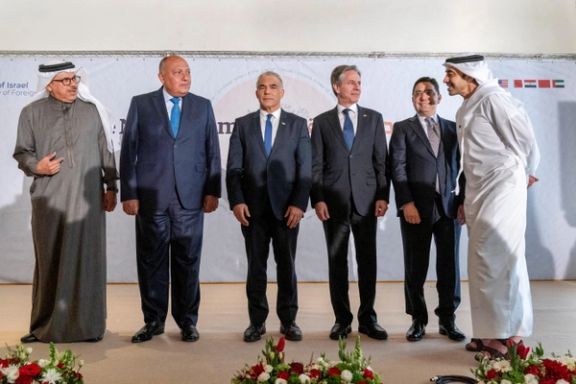
Since great-power talks to revive the JCPOA floundered in late summer with Washington and Tehran unable to bridge gaps, the US has levied additional sanctions on Iran and those trading with Iran, while Tehran has continued a nuclear program that since 2019 has exceeded JCPOA limits. The US sanctions have come under various rubrics – violation of the ‘maximum pressure’ sanctions introduced by the US in 2018 on leaving the JCPOA, ‘human rights,’ and Iran’s supply of military drones to Russia.
Iran nuclear snapback – a ‘decision’ for Europe
Price said Monday that any decision over snapback – a JCPOA mechanism that could see multilateral sanctions on Iran snap back if it violated the 2015 agreement – was a “decision for our European partners,” referring to the trio of France, Germany and the United Kingdom. All three take the US view that Iran’s supply of drones to Russia violates a clause in United Nations Security Council Resolution 2231, which endorsed the JCPOA.
But the challenge of a new right-wing government in Israel seems more pressing. Both Secretary of State Antony Biden and National Security Adviser Jake Sullivan are due in Israel this month, with US officials stressing a common commitment to prevent Iran acquiring a nuclear weapon.
This, along with an emphasis on the potential of Israel’s US-sponsored 2020 ‘normalization’ agreements with four Arab states, sits uneasily with US concern that Benjamin Netanyahu’s government is already taking steps likely to enflame the volatile situation in the occupied West Bank. Price conceded at his Monday press briefing that normalization agreements were “not a substitute for Israeli-Palestinian peace.”
Under a headline dubbed ‘The Perils of Ignoring the Middle East,’ Walter Russell Mead, professor at Bard College, argued in his Wall Street Journal column Tuesday that a “15-year decline in America’s regional influence” could be reversed by “a resolute and effective US policy to disrupt Iran’s ability to threaten its Iran neighbors…[including] if all else fails…military action to block Tehran’s nuclear program…[and] put the US back at the center of the Middle Eastern order.”
Read, a staunch supporter of the US interventions in Iraq and Syria but not Libya, argued that Biden’s current approach rested on an “impotence” that was “more expensive in the long run.”
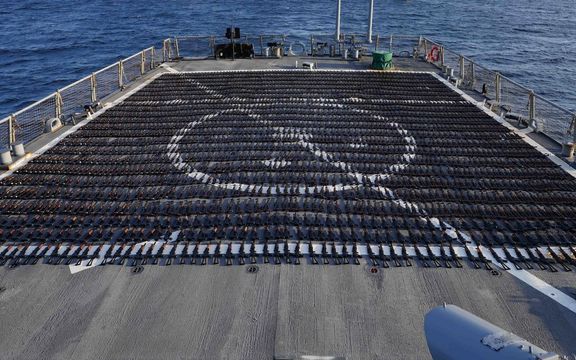
The US Navy last week intercepted a fishing vessel carrying 2,116 AK-47 assault rifles along a maritime route from Iran to Yemen, the Navy command announced.
Three US vessels were involved in the operation that seized the weapons from the vessel on a historic route used for illicit cargo traffic to the Houthi rebels in Yemen, the Navy statement said. Six Yemenis were on board the boat.
“This shipment is part of a continued pattern of destabilizing activity from Iran,” said Vice Adm. Brad Cooper, commander of US Naval Forces Central Command, U.S. 5th Fleet and Combined Maritime Forces. “These threats have our attention. We remain vigilant in detecting any maritime activity that impedes freedom of navigation or compromises regional security.”
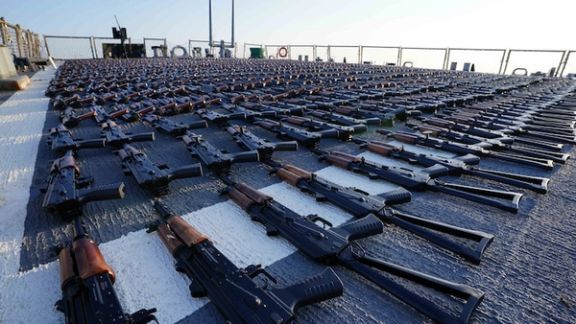
The US Navy has intercepted and captured several similar weapons cargos in the area in recent months, headed to Yemen. In early December the 5th fleet announced it had intercepted a fishing trawlersmuggling over 50 tons of ammunition, fuses and propellants for rockets in the Gulf of Oman on its way from Iran to Yemen.
On November 8, US warships intercepted more than 70 tons of ammonium perchlorate, a powerful oxidizer commonly used to make rocket and missile fuel, as well as 100 tons of urea fertilizer.
Arms sales and transfers to the Houthis in Yemen violates UN Security Council Resolution 2216 and international law.
“This shipment is part of a continued pattern of destabilizing activity from Iran,” said Vice Adm. Cooper. “These threats have our attention. We remain vigilant in detecting any maritime activity that impedes freedom of navigation or compromises regional security.”
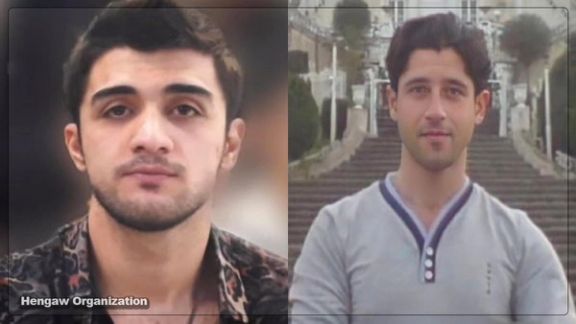
An Iranian teachers’ union has issued a statement to slam the execution of youths, demanding that the death sentences must be cancelled as soon as possible
The Coordination Council of Iranian Teachers’ Trade Associations on Tuesday also called for the resumption of fair trials for the defendants in the presence of lawyers chosen by the accused.
The statement also pointed out that Mohammad Hosseini and Mohammad Mehdi Karami, who were hanged by the regime on Saturday, were tried without going through legal formalities and the possibility of having a selected lawyer.
“However, the arrogant government thinks by hasty executions, it can cover up its inefficiency, which is the main cause of the recent uprising of those who lost their lives,” reiterated the council.
It also added that cruel verdicts are issued to create terror in the society so that the Islamic Republic can silence the voice of protesters against oppression, discrimination, and injustice.
Iran Human Rights Organization announced on Mondaythat at least 109 Iranian protesters are currently at risk of execution or facing death penalty sentences.
The Oslo-based organization said in its latest report that this figure is a minimum estimate as most families are under pressure to stay quiet, and the real number is believed to be much higher.
It also announced that at least 481 people including 64 children and 35 women, have been killed by security forces since mid-September, following the death of Mahsa Amini in police custody, which triggered the protests.
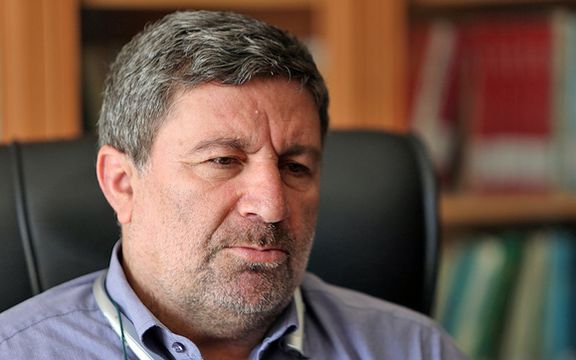
The managing editor of Tehran’s leading reformist daily Etemad says the paper decided not to cover an important topic because of constant government pressure.
Elias Hazrati, who is also the proprietor of the newspaper explained that restrictions imposed by the government have made it impossible for the editors to do their job according to the daily's editorial standards.
Hazrati said in the editorial that readers had complained why the paper did not carry a report on the anniversary of the Ukrainian plane, shot down by the Revolutionary Guard on January 8, 2020, as it took off from Tehran.
He stated that "in fact, Etemad's editors had prepared several reports on the topic with added value by its analysts. But Etemad's editorial standards were not compatible with the closed circle some policymakers and state institutions have drawn around the media to restrict their activities."
"When we found out how limited the scope of our articles should be, we decided not to publish the story at all," wrote Hazrati. However, his statement revealed that at least sensitive articles are read and censored by individuals other than the daily's editors before publication. He also spoke about directives that were issued by "some institutions" to censor the media.
The statement by Hazrati, which came in an editorial entitled "A transparent report to our readers" in the January 9 issue of Etemad, was made a week after security forces stormed the home of the daily's political editor Medi Beik's and arrested him after confiscating his cell phone, computer and other equipment.
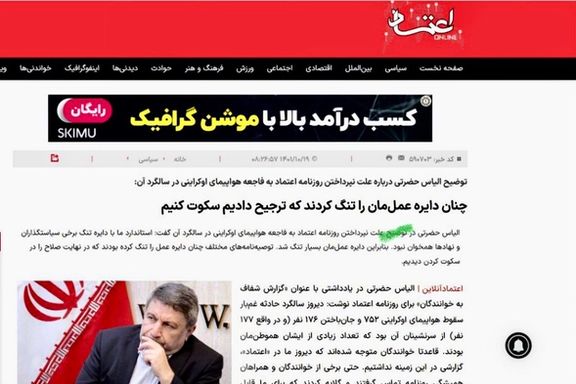
When Beik's wife broke the news about his arrest, his colleagues in the newspaper expressed support for him in social media comments. On January 7 several columnists as well as Hazrati himself expressed support for Beik on the frontpage of the newspaper, pointing out that he should not be jailed for doing his job.
Beik became very well-known for publishing a series of reports about young protesters in prison. In one particular case, Amir Hossein Rahimi, a 15 year-old jailed protesters with shotgun pellets in his head and neck whose mother did not have the bail money to secure his release, was finally freed thanks to an article in Etemad about the case. The shotgun pellets were subsequently taken out in a Tehran hospital.
Hazrati’s reference to "institutions" refers to the IRGC and the intelligence ministry in the Iranian political jargon. Although IRGC's aerospace commander Amir Ali Hajizadeh has admitted that it was an IRGC battery that fired two missiles on the Ukrainian aircraft, still, discussing the matter is some sort of taboo for the press. Even the Iranian Judiciary has not been able to convince the families of the victims why due judicial process has not been observed to determine the main culprits.
Hazrati said: "We trust that our policy is quite clear. We believe that well-documented reports by Etemad and other media outlets can pave the way for the people's trust in the government." He pointed out that the arguments about the downing of the aircraft and secrecy around the case has eroded this trust. However, he noted that perhaps the authorities do not want any coverage of the matter while a court is investigating the case.
"But we believe that free media are part of responsible governance. Democratic countries welcome transparent news dissemination. And experts and the family members of the victims have a right to speak about the case outside the court," he said.
The story has been controversial from the start as Iranian officials denied any attack on the aircraft for three days before admitting that it was hit by two missiles. Still, no one wants to accept any responsibility.
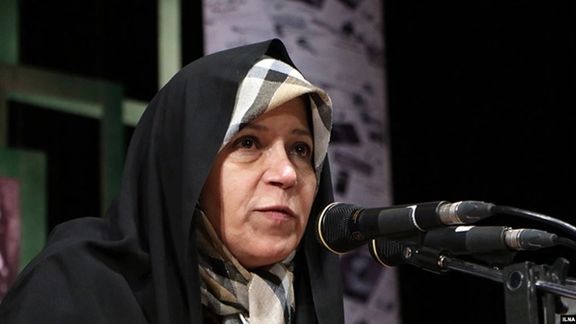
Former lawmaker and daughter of Iran's former President Akbar Hashemi Rafsanjani has been sentenced to five years in prison for criticizing the Iranian regime.
Faezeh Hashemi’s lawyer, Neda Shams, wrote on Twitter Tuesday that her client was sentenced to five years in prison at the preliminary stage.
She also noted that she cannot comment on the verdict as it is not final yet and her client is still in prison with other charges against her.
According to ISNA, Faezeh Hashemi was indicted on July 3 for “propaganda against the establishment” and “insulting the sanctities”.
Hashemi was arrested in September, days after popular protests broke out in Iran.
Speaking on the social audio app Clubhouse, the political activist had said that removing the IRGC from the list of Foreign Terrorist Organizations (FTO) is not in Iran's interest.
Negotiations to restore Iran’s 2015 nuclear deal encountered complications as Tehran demanded the IRGC be removed from the terrorist list.
Footage of Hashemi Rafsanjani also surfaced in media, talking about Prophet Muhammad and how he used his wife’s money to advertise Islam.
Hashemi is known for her critical remarks about the Islamic Republic, its leaders, and policies. Her father, who for decades was the second most powerful man in the Islamic Republic, and helped bring Supreme Leader Ali Khamenei to power in 1989, allowed the IRGC to become an economic player in the country.